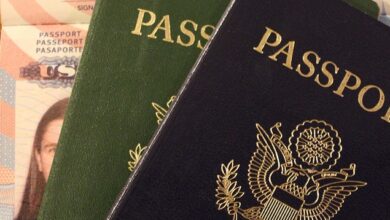What happens if your residence permit expires?

1. Loss of Legal Status
When your residence permit expires, you lose your legal status to live, work, or study in the country. This means:
- You may no longer have the right to legally reside in the country.
- Your ability to work or engage in certain activities (e.g., opening bank accounts, accessing healthcare services) may be restricted.
- Traveling abroad and attempting to re-enter the country could become problematic.
2. Potential Fines or Penalties
Many countries impose fines or penalties for overstaying a residence permit. The amount of the fine often depends on:
- How long you have overstayed.
- Whether this is your first offense or if you have a history of violating immigration rules.
In some cases, repeated violations or long-term overstays can result in more severe consequences, such as:
- A ban from reapplying for a visa or residence permit for a specified period.
- Being placed on a blacklist, which could affect future travel plans to other countries.
3. Risk of Deportation
If authorities discover that you are staying in the country without a valid residence permit, you may face deportation. Deportation involves being forcibly removed from the country and potentially barred from returning for years. In extreme cases, criminal charges may also be filed against you.
4. Impact on Future Visa Applications
An expired residence permit can negatively impact your ability to obtain visas or permits in the future. Immigration officials often review an applicant’s compliance with previous visa or permit conditions. If they find evidence of overstaying, it may lead to:
- Delays in processing new applications.
- Rejection of future visa or permit requests.
- Increased scrutiny during interviews or background checks.
5. Limited Access to Services
Without a valid residence permit, you may encounter difficulties accessing essential services, such as:
- Healthcare: Public health systems may deny non-emergency care to undocumented individuals.
- Employment: Employers may terminate your contract or refuse to hire you without proof of legal residency.
- Banking: Banks may freeze or close accounts linked to an expired permit.
- Utilities: Service providers might disconnect utilities like electricity, water, or internet.
What Should You Do If Your Residence Permit Expires?
Step 1: Act Quickly
The sooner you address the issue, the better your chances of resolving it without facing harsh penalties. Contact the relevant immigration authority or consulate immediately to explain your situation and inquire about renewal options.
Step 2: Apply for Renewal
Most countries allow residents to apply for a renewal of their residence permit before or shortly after its expiration date. Be prepared to provide updated documentation, such as:
- Proof of income or financial stability.
- Evidence of employment or enrollment in educational institutions.
- Health insurance details.
- Criminal background clearance (if required).
Note: Some jurisdictions require applicants to renew their permits in person at a local office, while others accept online submissions.
Step 3: Request a Grace Period
In certain cases, immigration authorities offer a grace period during which you can remain in the country legally while processing your renewal application. Check whether this option is available in your location.
Step 4: Consider Departure Options
If renewal isn’t possible due to eligibility issues or administrative delays, consider leaving the country voluntarily to avoid deportation. Voluntary departure may help minimize negative consequences, such as bans or fines.
Step 5: Seek Legal Advice
Consult an immigration lawyer or advisor who specializes in the laws of the country where you reside. They can guide you through the process, advocate on your behalf, and help mitigate any adverse effects.
Preventive Measures
To avoid letting your residence permit expire in the first place:
- Set reminders well in advance of the expiration date.
- Keep all necessary documents organized and up-to-date.
- Familiarize yourself with the renewal process and requirements.
- Stay informed about changes in immigration policies that may affect your status.



